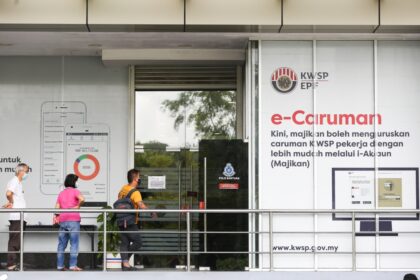KUALA LUMPUR, June 10 — The revision of Sales Tax rates and the expansion of the Service Tax scope form part of targeted fiscal measures to keep the nation’s finances on a sustainable path, tax experts said.
PwC Malaysia tax leader, Steve Chia, said the review of the Sales and Service Tax (SST) was expected, having been announced in Budget 2025 last October. He urged the public to view the changes in a broader fiscal context.
“Whilst it is aimed at supporting the medium-term fiscal goals, a search for a longer-term solution remains necessary to ensure a sustainable revenue contribution for the country.
“Although the current expansion is relatively broader, the government is committed to containing the scope to selected and non-essential goods and business-to-business (B2B) services to ensure that the rakyat will not be burdened,” he told Bernama.
Finance Ministry II Minister, Datuk Seri Amir Hamzah Azizan, earlier announced that the government would implement the revised Sales Tax rates and expanded Service Tax scope from July 1, 2025, to strengthen the country’s fiscal position and improve support for public welfare.
Chia noted that a key challenge would be ensuring cascading costs are either eliminated or not passed along the value chain.
“Since the Budget 2025 announcement until now, the government has made efforts to engage with relevant stakeholders, including industry associations and tax professionals, to ensure that the revisions are well-informed and the industry impact and issues are taken into consideration.
“Therefore, the change is aimed at strengthening Malaysia’s fiscal position by increasing revenue and broadening the tax base.
“We can see that the government is careful in identifying areas for rate increases and scope expansion to protect and cushion the impact on the rakyat at large,” he added.
Meanwhile, KPMG Malaysia head of tax, Soh Lian Seng, noted that the current SST framework is often viewed as less comprehensive than the previous Goods and Services Tax (GST) system and is sometimes criticised for being regressive.
“This revision appears to be an effort to make the tax structure more progressive, broadening the base while ensuring that the burden does not disproportionately fall on the rakyat.
“Expanding the scope of taxable services and revising rates can help improve revenue collection, which is essential for Malaysia’s medium-term fiscal consolidation,” he said.
Soh emphasised that the government is likely aiming to enhance fairness and efficiency in tax collection by refining the scope and structure of the SST following the review announcement.
In the meantime, Soh noted that there may be a short-term spike in consumer spending as people rush to make purchases before the new rates take effect, similar to what was observed in 2015 ahead of GST implementation.
“However, this is likely to normalise within the next few months. In regard to concerns about inflation, the impact should be modest.
“While there are exemptions and reliefs in place to cushion the impact, the net effect should still contribute positively to government coffers, supporting broader fiscal sustainability,” he added. — Bernama
Source: 
Tax experts say expanded SST key step towards strengthening Malaysia’s finances

































